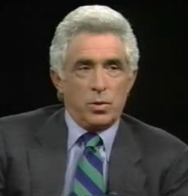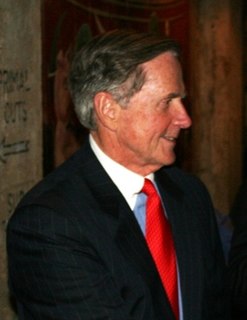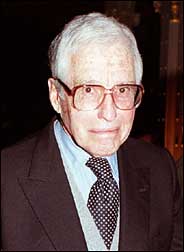
A leveraged buyout (LBO) is one company's acquisition of another company using a significant amount of borrowed money to meet the cost of acquisition. The assets of the company being acquired are often used as collateral for the loans, along with the assets of the acquiring company. The use of debt, which normally has a lower cost of capital than equity, serves to reduce the overall cost of financing the acquisition. The cost of debt is lower because interest payments often reduce corporate income tax liability, whereas dividend payments normally do not. This reduced cost of financing allows greater gains to accrue to the equity, and, as a result, the debt serves as a lever to increase the returns to the equity.
Private equity (PE) typically refers to investment funds, generally organized as limited partnerships, that buy and restructure companies that are not publicly traded.
RJR Nabisco, Inc., was an American conglomerate, selling tobacco and food products, headquartered in the Calyon Building in Midtown Manhattan, New York City. RJR Nabisco stopped operating as a single entity in 1999; however, both RJR and Nabisco still exist.
KKR & Co. Inc. is an American global investment firm that manages multiple alternative asset classes, including private equity, energy, infrastructure, real estate, credit, and, through its strategic partners, hedge funds. The firm has completed more than 280 private equity investments in portfolio companies with approximately $545 billion of total enterprise value as of June 30, 2017. As of September 30, 2017, Assets Under Management ("AUM") and Fee Paying Assets Under Management ("FPAUM") were $153 billion and $114 billion, respectively.

Henry R. Kravis is an American businessman, investor, and philanthropist. He is the co-founder of KKR & Co. Inc., a global investment firm with a market cap of approximately $24.7 billion as of November 2019. He has an estimated net worth of $6.4 billion as of February 2020, ranked by Forbes as the 317th richest person in the world.
George R. Roberts is an American billionaire financier. He is one of the three original partners of Kohlberg Kravis Roberts, which he co-founded alongside Jerome Kohlberg and first cousin Henry Kravis in 1976.

Forstmann, Little & Company was a private equity firm, specializing in leveraged buyouts (LBOs). At its peak in the late 1990s, Forstmann Little was among the largest private equity firms globally. Ultimately, the firm would suffer from the bursting of the internet and telecom bubbles, having invested heavily in technology and telecommunications companies. Following the death of the last surviving founder, Theodore Forstmann, in 2011, the firm was dissolved and its assets sold off. It closed in May 2014.

Theodore Joseph Forstmann was one of the founding partners of Forstmann Little & Company, a private equity firm, and chairman and CEO of IMG, a global sports and media company. A billionaire, Forstmann was a Republican and a philanthropist. He supported school choice and funded scholarship programs for the disadvantaged. He led a tour of refugee camps in the former Yugoslavia.
Nicholas Curt "Nick" Forstmann was one of the founding partners of Forstmann Little & Company, a private equity firm.

Barbarians at the Gate is a 1993 television movie based upon the 1989 book by Bryan Burrough and John Helyar, about the leveraged buyout (LBO) of RJR Nabisco.

James Dixon Robinson III is an American businessman best known for his position as the chief executive officer of American Express Co. from 1977 until his retirement in 1993.
Frederick Ross Johnson, OC was a Canadian businessman, best known as the chief executive officer of RJR Nabisco in the 1980s.
Jerome Kohlberg Jr. was an American businessman, investor, and philanthropist. He was an early pioneer in the private equity and leveraged buyout industries founding private equity firm Kohlberg Kravis Roberts & Co. and later Kohlberg & Company.
The history of private equity and venture capital and the development of these asset classes has occurred through a series of boom-and-bust cycles since the middle of the 20th century. Within the broader private equity industry, two distinct sub-industries, leveraged buyouts and venture capital experienced growth along parallel, although interrelated tracks.
Private equity in the 1980s relates to one of the major periods in the history of private equity and venture capital. Within the broader private equity industry, two distinct sub-industries, leveraged buyouts and venture capital experienced growth along parallel although interrelated tracks.
Private equity in the 2000s represents one of the major growth periods in the history of private equity and venture capital. Within the broader private equity industry, two distinct sub-industries, leveraged buyouts and venture capital expanded along parallel and interrelated tracks.

Shearson was the name of a series of investment banking and retail brokerage firms from 1902 until 1994, named for Edward Shearson and the firm he founded, Shearson Hammill & Co. Among Shearson's most notable incarnations were Shearson / American Express, Shearson Lehman / American Express, Shearson Lehman Brothers, Shearson Lehman Hutton and finally Smith Barney Shearson.
Peter A. Cohen is the chairman and CEO of Andover National Corporation, a public holding company. He was formerly the Chairman and CEO Cowen Inc., also known as Cowen & Company. Prior to his current role, Cohen founded Ramius Capital Management in 1994, a $13 billion investment firm, which he merged with Cowen Inc in 2009. Prior to this, Cohen was the chairman and chief executive officer of Shearson Lehman American Express from 1983 through 1991.
Eric Gleacher is an American investor and financier, and the founder and chairman of Gleacher & Company, an independent investment banking firm based in New York City.

Derald H. Ruttenberg was a lawyer who became a deal maker, organizing large industrial mergers. He arranged the merger of Studebaker and Worthington Corporation, and for some time ran the combined Studebaker-Worthington. He provided the financing for the Derald H. Ruttenberg Cancer Center at Mount Sinai Hospital, New York.








